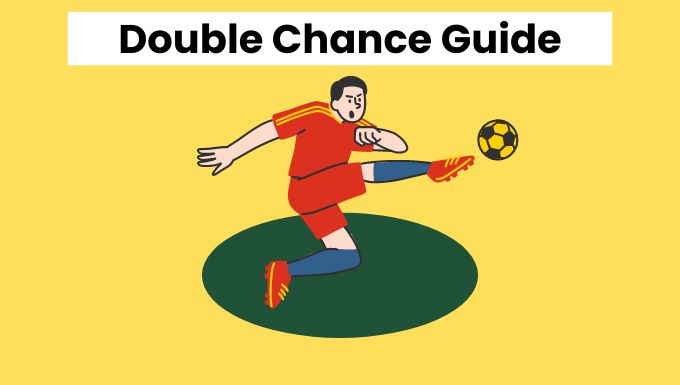I’ve heard the conspiracy theories a hundred times; “The game was fixed!” or “The betting sites rigged it!”—usually after a shocking upset or a questionable play. But here’s the reality: while match-fixing does happen, it’s almost never the bookmakers behind it. In fact, they hate fixing because it messes with their risk calculations and hurts their profits.
Most fixing scandals involve players, coaches, or referees bribed by outside criminals or betting syndicates; not the big betting companies themselves. Bookies make money by balancing bets, not by manipulating results. If they were caught fixing games, their licenses would be revoked, and their billion-dollar businesses would collapse overnight.

That said, shady, unregulated bookies in some countries might have ties to corruption, which is why sticking to reputable, licensed operators matters. The real danger isn’t bookies fixing matches, it’s insider leaks or illegal gamblers influencing outcomes.
Understanding Match Fixing
Let’s be real, match fixing happens, but not in the way most people think. I’ve seen enough shady stories and odd betting patterns to know it’s rarely some big conspiracy by bookmakers. Instead, it’s usually players, coaches, or refs getting paid to throw games. And honestly? It’s one of the biggest threats to honest betting.
Most fixes aren’t about throwing entire matches because that’s too obvious. Instead, it’s small things like a player taking a yellow card at a specific time, a team conceding an early corner, or a goalie letting in one soft goal. These “spot fixes” are harder to detect but still mess with the game. The worst part? The people behind it are often organized crime groups, not some lone gambler trying to make a quick buck.
Bookmakers actually hate fixing because it screws up their odds and risks their reputation. Big betting companies have teams tracking suspicious bets and will freeze markets if something looks off. But here’s the scary truth is that lower league games and smaller sports are way more vulnerable. Less attention, less money, and easier to corrupt.
Match Fixing Vs Bookmaker Manipulation
Let’s cut through the rumors; match fixing and bookmaker manipulation are two very different things, and confusing them can cost you money. Here’s what I’ve learned from years in the betting trenches.
Match fixing is when players, coaches, or refs deliberately alter a game’s outcome for betting profits. It’s usually orchestrated by criminal syndicates, not bookies. I’ve seen everything from a basketball player missing free throws on purpose to a tennis star tanking a set. The big tip-off? When insane amounts of money pour in on sketchy markets (like “player X to get a red card”) right before the match.
Bookmaker manipulation, on the other hand, is a myth 99% of the time. Licensed bookies don’t need to rig games—their odds already guarantee profit. Sure, they might tweak lines to balance action or limit sharp bettors, but that’s just business. The real danger comes from shady offshore books that might delay payouts or void winning bets on technicalities; that’s their version of “manipulation.”
Here’s the key: Match fixing corrupts the sport; bookmaker “manipulation” (when it happens) screws bettors. Spot the difference by watching for:
- Odd betting patterns → Likely match fixing
- Sudden line moves with no news → Possibly sharp money, not manipulation
- Unregulated books changing terms mid-game → Red flag
who Really Fixes Matches (And Why)
Match-fixing isn’t something bookmakers need to do, they already have the odds stacked in their favor. The real fixing comes from players, referees, team officials, and, in many cases, criminal syndicates.
Players, especially in lower leagues where wages are low, can be tempted by easy money. A goalkeeper might let in a soft goal, a defender might make a clumsy tackle in the box, or a striker might “accidentally” miss a sitter. It doesn’t take much to influence a match, and when you’re earning peanuts, a shady offer can be hard to turn down.
Referees also play a big role in fixing. A few dodgy penalty decisions, a controversial red card, or letting a team waste time can all be ways to swing a result. In some leagues, corruption is so deep that officials are pressured to favor certain teams.
Then there are the criminal groups. These guys don’t bet like regular punters. They find people inside the game to manipulate results, then hammer the markets with huge bets on specific outcomes. When a match is fixed, it’s not just about who wins or loses, it could be total goals, corners, or even yellow cards.
How Bookmakers Detect And Prevent Match Fixing
Here’s the inside scoop on how bookies actually spot and stop match-fixing because contrary to what some conspiracy theorists think, they’re actually the good guys in this fight.
First, they’ve got AI monitoring systems that would make the NSA jealous. I’ve talked to risk managers who showed me how their algorithms track every bet in real-time. When they see unusual patterns like massive money on a obscure Romanian third-division game, or someone betting crazy amounts on “number of yellow cards” red flags go up instantly.
They also track odds movements like hawks. If the line shifts dramatically without any team news or logical reason, their trading teams will investigate. I’ve seen cases where bookies froze markets mid-game because the betting smelled fishy – and sure enough, the match was later investigated for fixing.
Bookmakers share intel with each other too. There are international networks where they report suspicious activity. When five major books all see the same weird bets coming from the same accounts, they know something’s up.
Most importantly, they work with authorities. The legal bookies actually want matches to be clean as fixed games hurt their business. That’s why you’ll see them providing evidence to police and sports federations.
Red Flags For Bettors
After years in the betting game, I’ve learned to trust my gut when something smells off. Here are the biggest warning signs that a match might be fixed:
- Wild Odds Movements
When lines shift dramatically without team news or injuries, be suspicious. I’ve seen matches where favorites suddenly became underdogs overnight—and surprise, the “underdog” threw the game. - Unusual Betting Patterns
If heavy money pours in on random markets (like “player to get a yellow card” or “exact score in the 37th minute”), it’s a major red flag. Criminals love niche bets because they’re easier to manipulate. - Low-Profile Leagues Acting Strange
Fixers target obscure games (think Belarusian lower leagues or friendly matches) because there’s less scrutiny. If a match from a no-name league has suspiciously high betting volume, steer clear. - Players/Refs Behaving Oddly
A star player “forgetting” how to pass, a ref making blatantly bad calls, or a team suddenly playing like they’ve never met each other—these aren’t coincidences. - Rumors or “Insider Tips”
If someone promises a “100% sure bet” (especially for a random game), it’s probably a setup. Real insiders don’t share golden tips for free.
At the end of the day, bookmakers don’t need to fix matches, they already have a system that guarantees them profits through odds and balancing the book. Their goal is to take bets, manage risk, and make money, not control match outcomes. If anything, they’re the first to flag suspicious activity because match-fixing hurts their business.
That said, match-fixing does exist, but it’s usually the work of corrupt players, referees, or criminal groups, not the bookies. Fixers target lower leagues where players earn less, making them easier to bribe. That’s why you see dodgy goals, strange referee decisions, and suspicious betting patterns in obscure matches rather than big leagues where scrutiny is high.
As a bettor, the best thing you can do is stay sharp. Watch for red flags such as massive odds swings, unusual betting volume, or late goals that seem too convenient. If something feels off, it probably is.


